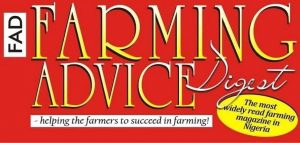🎈GET THIS NOW: AUTOMATED INCOME MACHINE
Here are 10 important facts about nutrition in sheep and goat production:
1. Forage-Based Diets: Sheep and goats thrive on forage-based diets, including grasses, legumes, and browse. High-quality forages are essential for energy, fiber, and protein intake.
Read also: 10 ways to show that you are smart turkey farmer
2. Protein Requirements: Protein is crucial for growth, reproduction, and milk production. Legumes like alfalfa and soybean meal are excellent protein sources.
 Learn More
Learn More3. Energy Needs: Energy is supplied by carbohydrates from forages and grains. Insufficient energy leads to poor growth, reproduction failure, and reduced milk yield.
4. Minerals: Sheep and goats require macro-minerals (calcium, phosphorus, magnesium) for bone health and lactation, as well as trace minerals like selenium, copper, and zinc for immunity and reproduction. However, copper levels must be carefully managed, as sheep are more sensitive to copper toxicity than goats.
5. Vitamins: Vitamins A, D, and E are critical for vision, bone health, reproduction, and immunity. Vitamin E and selenium together reduce the risk of white muscle disease in young lambs and kids.
6. Fiber for Rumen Health: Adequate fiber from hay or pasture supports rumen function, prevents acidosis, and enhances overall digestion.
7. Water Intake: Clean, fresh water is vital for digestion, nutrient absorption, and milk production. Water needs increase during lactation and in hot weather.
8. Supplementation During Gestation and Lactation: Pregnant and lactating animals have higher nutrient requirements. Grain or concentrate supplementation may be necessary during these stages to meet energy and protein needs.
9. Avoid Overfeeding Grain: Excessive grain feeding can cause acidosis, bloat, or enterotoxemia (overeating disease). Balancing grain with roughage is key for gut health.
Read also: 10 ways to show that you are a smart rice farmer
10. Seasonal Feeding Strategies: Nutritional needs and feed availability vary with seasons. Supplementation with conserved forages (e.g., hay, silage) or concentrates may be needed during dry seasons or winter.
Proper nutrition in sheep and goat production supports growth, reproduction, milk production, and overall health, ensuring higher productivity and profitability.
🎈GET THIS NOW: AUTOMATED INCOME MACHINE
🟣CREATED BY DR JOSEPH DRJI-FOLUTILE
For more information and updates join our WhatsApp group HERE
Like our page on Facebook HERE











